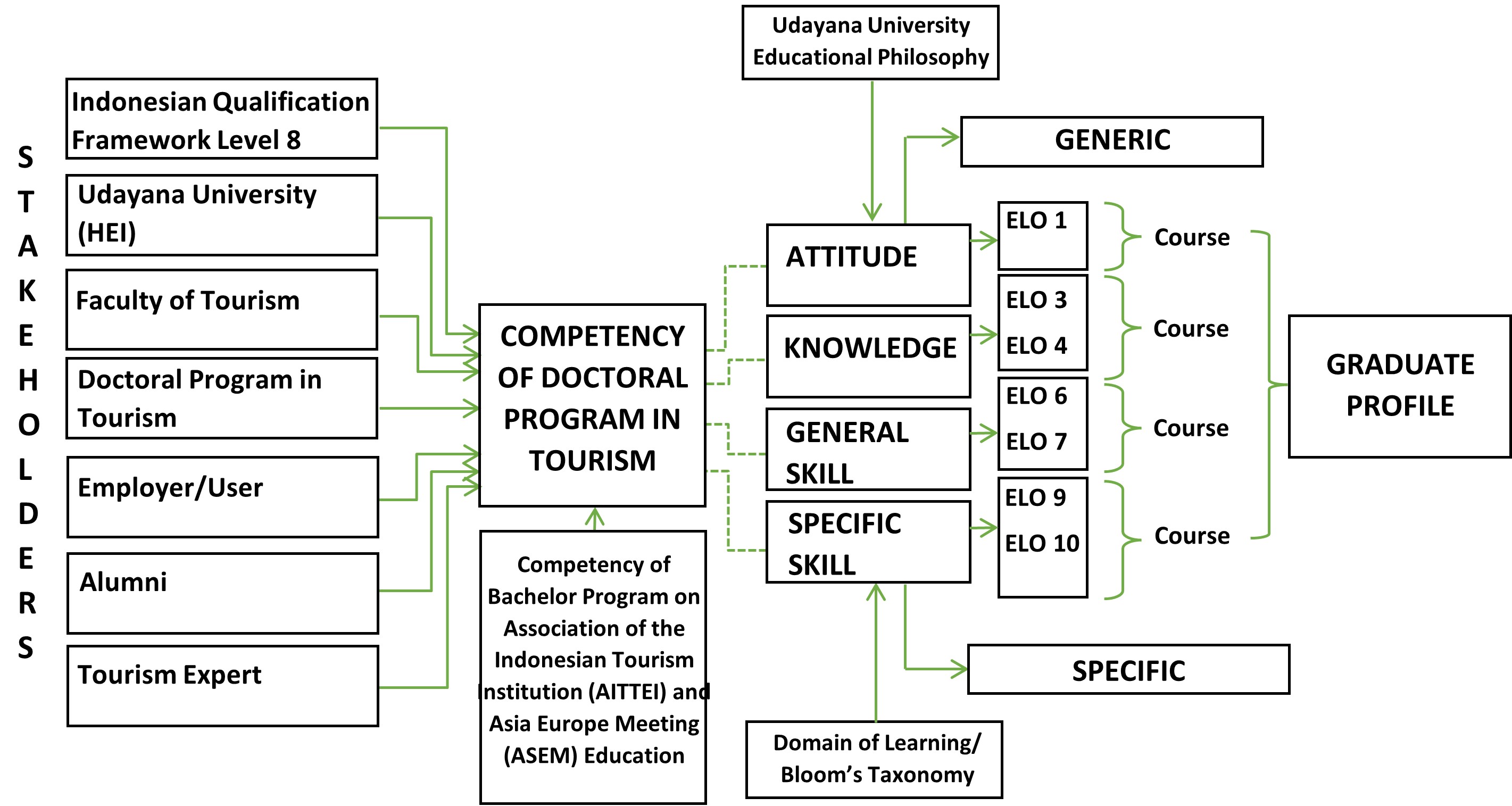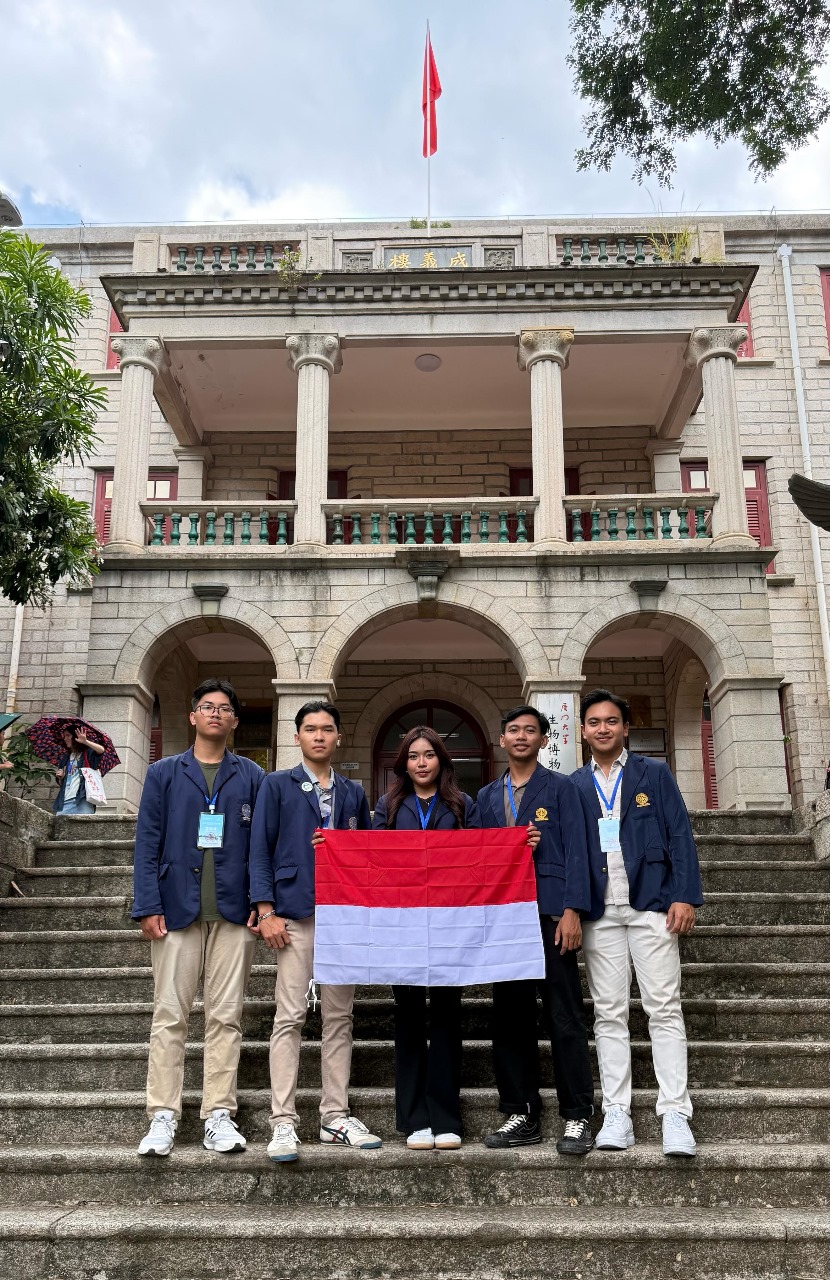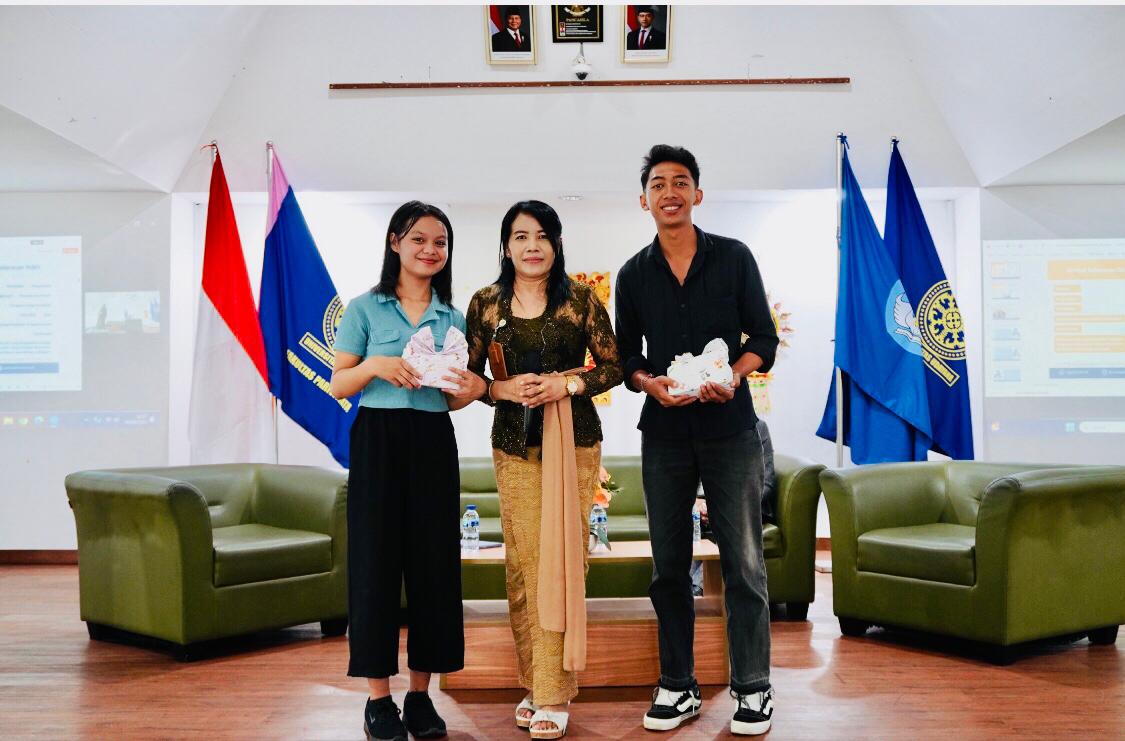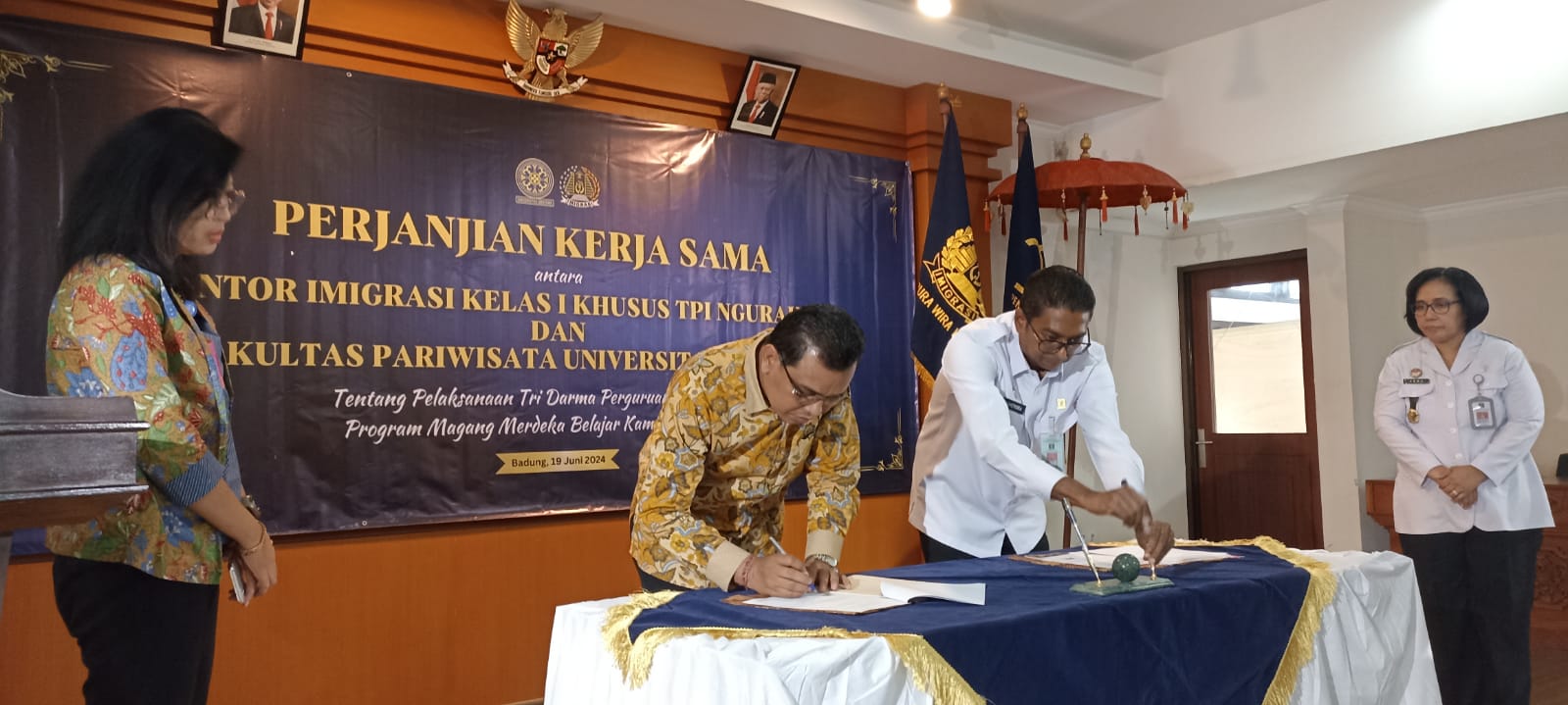Expected Learning Outcomes
Expected Learning Outcome (ELO) Doctoral Program of Tourism, University of Udayana | |
| |
1 | to contribute the advancement of civilisation through increasing the quality of life in community, nation, and state based on Pancasila |
2 | to respect of the cultural diversity, perspectives, faiths and beliefs, as well as other people's idea and novelty |
3 | to Internalize the integrity, responsiveness, trustworthiness, and professionalism (Global Code of Ethic for Tourism) in to Indonesian personalities on carrying out duties |
4 | to evaluate the philosophy that underpins tourist science theory, stakeholder theory, globalization theories, critical theories in the socio-cultural area, tourism network and cooperation theory, innovation and invention theory, and social behaviour theory |
5 | to contribute the theory development (theory construction/building), as well as substantial , current and advanced knowledge in the tourism sector |
6 | to evaluate the theoretical concepts and tourism analysis methods |
7 | to evaluate the current issues in terms of the Global Code of Ethic for Tourism and the development of communication and information technology that supports tourism |
8 | to propose and develop a new science, original, appraise, advanced and useful knowledge based on ontology, epistemology, and axiology in tourism areas which include: hospitality, travel tourism, tourist destinations and events through multidisciplinary, interdisciplinary and transdisciplinary research |
9 | to evaluate the relevance and theory of existing and emerging tourism from an interdisciplinary, multidisciplinary, and/or transdisciplinary perspective to current tourism industry practices |
10 | to evaluate the impact of existing and emerging tourism theories from an interdisciplinary, multidisciplinary, and/or transdisciplinary perspective on economic, socio-cultural, and environmental and relevant global issues |
11 | to create and develop new theories/conceptual/scientific ideas that contribute to the development and experience of science and/or technology that pays attention to and applies humanities values in their field of expertise, by producing scientific research based on scientific methodologies, logical, critical, systematic and creative thinking |
12 | to produce the interdisciplinary, multidisciplinary or transdisciplinary research, including theoretical studies and/or experiments in the fields of science, technology, art and innovation as outlined in dissertations, and papers that have been published in reputable international journals |
13 | to organize the research that is appropriate, current, advanced, and provides benefits to mankind through an interdisciplinary, multidisciplinary, or transdisciplinary approach, in order to develop and/or produce problem solving in the fields of science, technology, art, or society, based on the results of studies on availability of internal and external resources |
14 | to develop the research roadmap using an interdisciplinary, multidisciplinary, or transdisciplinary strategy, based on a review of the key research objectives and their constellation on broader targets |
15 | to formulate the scientific, technical, or creative arguments and solutions based on a critical perspective of facts, concepts, principles, or hypotheses that can be explained scientifically and academically, and communicating them to the public through the media or directly |




FAKULTAS PARIWISATA